While Denying Climate Change, Texas Braces Itself for Impact
In a state where the politics are a contradiction to the growing threat of climate change, Texas politicians are scrambling to create a narrative for funding to avert the imminent threat.
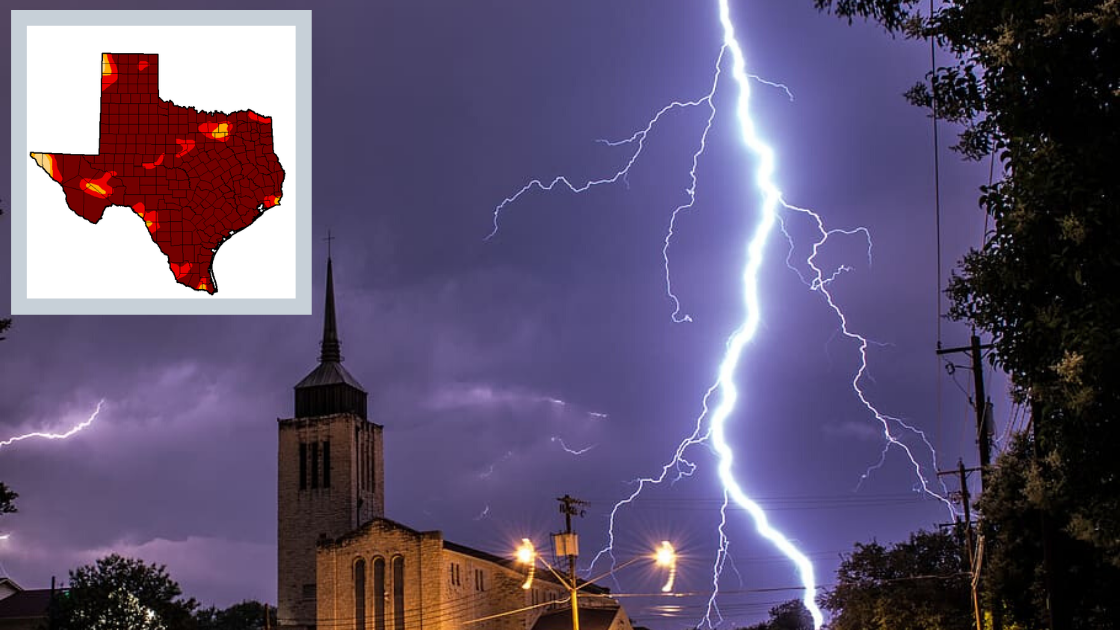
Like other coastal cities and states, Texas is one of the hardest hit by the effects of climate change in the US. Between 1980 and 2015, the state witnessed more than 75 climate and weather-related disasters. The US government launched the federal funding program to preemptively combat these problems and help states to be more prepared against natural disasters.
The $16 billion program was created by Congress and is managed by the Department of Housing and Urban Development. To get funding from the program, however, states have to send a proposal to the department and explain why they should get the money.
In a state where the politics are a contradiction to the growing threat of climate change, Texas politicians are scrambling to create a narrative for funding to avert the imminent threat while denying climate change and its role in the increasing occurrence of natural disasters.
The state’s water supplies are dwindling even as floods become commonplace. The irony is not lost on many voters in Texas who, according to a recent poll, now support action to address climate change. Many communities in the state are coming face to face with the new realities of dry water taps as long-running droughts take the Lone Star State hostage.
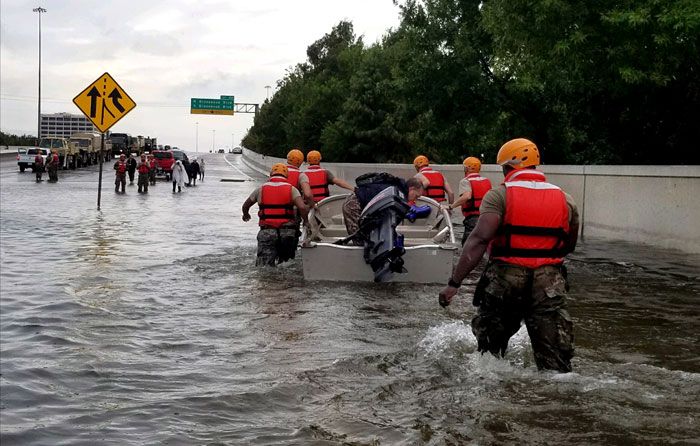
#IrionCounty is one of many towns hard hit by dwindling water supplies in part because of the oil industry’s unquenchable thirst for water needed for fracking. Climate change is only making things worse.
While a growing number of Texas state government officials now acknowledge the climate upheaval that the state finds itself in, they are still determined to stay away from publicly acknowledging the science of climate change. Former Texas Governor Rick Perry once commented on climate change saying that the “so-called science” on climate change has been “doctored” and the narrative “hijacked by the political left.”
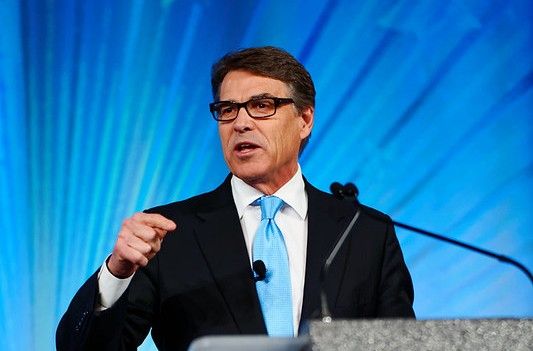
In what might be the ultimate irony of the state government’s leadership, it has submitted a 306-page draft proposal asking for billions of dollars to prepare for the challenges ahead. Instead of mentioning global warming or climate change, the Texas proposal talks about “changing coastal conditions.”
The Current State of Things
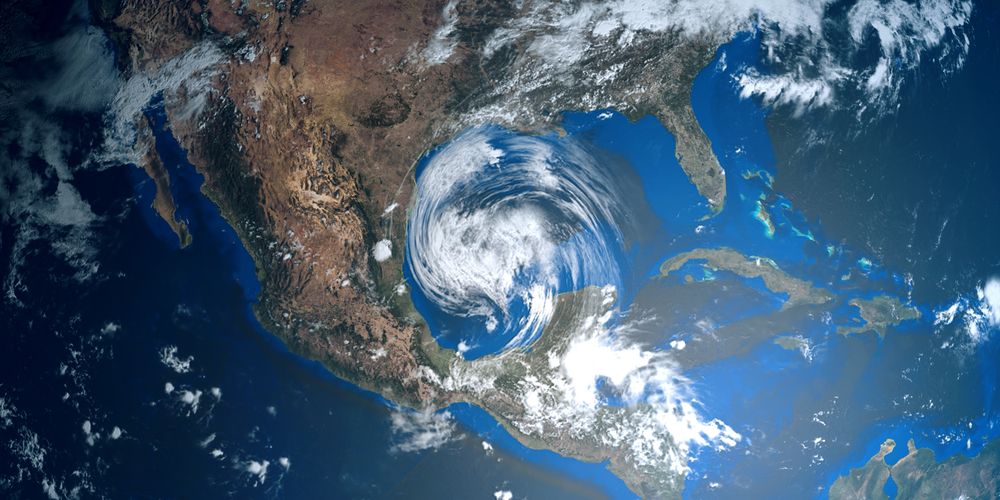
The natural disasters in Texas triggered by rising temperatures around the world are well-documented. However, there are other big impacts of climate change that may not get the major headlines, but they still affect the residents of the area.
- Warm waters in the Gulf lead to hurricanes like Harvey
- The mosquito season has grown from 36 days a year in the early 90s to 54 days every year since 2006
- The current number of danger days (with a temperature above 105 degrees) has gone from 80 at the turn of the millennium to over 100 days today
- Dallas is now more than 19 degrees hotter than nearby rural areas. Austin is 0.9 degrees warmer on average than nearby rural areas
- Texas is now home to 9 of the hottest cities in the US with McAllen City in #HidalgoCounty in second place
- Among the lower 48 states, Texas faces the worst threat from widespread summer drought
- 72% of people in Texas are living in areas that are at an elevated risk of wildfires
- Climate change is also causing more flooding in Texas. In Port Isabel city in #CameronCounty, Texas, there have been 121 total floods from 2005 to 2014 and scientists expect such flooding to continue as more glaciers melt under global warming. The total home value that will be at risk in Port Isabel alone by 2050 will be $55 million
- 127,000 people in Texas are at risk of coastal flooding
- Climate change is driving up energy use in Texas
How Will Climate Change Affect Texas in the Future?
Assuming the present status quo remains, the impact of climate change will continue to worsen, making the cities in Texas more unsafe, perhaps more than at any other time in the past for human habitation. Here are just a few predictions:
- The danger days in cities like #SanAntonio will rise to 131 by 2050
- By 2050, Texas will only be second to Florida on the “number of dangerous heat days” scale with more than 115 such days
- By 2050, the severity of summer drought in Texas is expected to worsen by 75% in comparison to current levels
- Texas is expected to hold the top spot for wildfire threats in the US by 2050
- A further 117,000 people will be at risk of coastal flooding by 2050
What does it All Mean for SMEs?
Many small and medium-sized businesses in Texas are already groaning under the impact of global warming. As the state suffers natural disasters, the spill-over effect hits businesses in diverse ways including:
Reduced productivity
Rising temperatures can trigger a wide range of health issues, including respiratory problems, heart strokes, aggravation of pre-existing health conditions, and more. This will translate to fewer hours worked by employees overall.
Climate-change-related migrations can also make it harder for businesses to find or retain critical talent as labor force providers will encourage their clients to look elsewhere.
Loss of Business
Wildfires and flooding can destroy business premises in minutes. Thus, climate change can take away livelihoods and truncate business growth.
Higher overheads
As climate change makes cities in Texas more prone to disasters, insurance companies will continue to increase the already exorbitant premiums. Real estate companies that design business premises with some level of disaster-proofing (dams, elaborate cooling systems, backup power generators and more) will also pass on the cost to small businesses and enterprises.
As property prices continue to tick upwards, it will be difficult for smaller businesses to maintain physical presence while growing their brands due to the inability to provide competitive pricing to their customers.
Loss of Income and Opportunity
When natural disasters strike, businesses have to shut down until they can recover. This leads to a loss of income. 40% of small businesses never recover from such disasters. Even when the businesses reopen, the buying power of the local populace could remain subdued for longer. For tourism-related businesses, it is also likely that there will be a drastic drop in patronage as prospective tourists may want to avoid disaster-prone areas.
Beyond the Politics
There is a general consensus that more Texans are waking up to the dangers of climate change. Natural disasters are no longer just waved aside as Acts of God. However, the increased awareness should translate to more action, even in the presence of a severe lack of political interest in the issue. So what should Texans do?
Accept that climate change is not a meaningless trope
The scientific debates have long been concluded. Human activity is contributing immensely to global warming, and natural disasters will get more intense and frequent if nothing is done to cultivate the right behaviors now and pass them on to the future generations.
Reduce your waste and carbon footprint
This will save you money and ensure you are doing your bit to save Texas and the planet at large. Only buy and use what you need, and go with alternatives that are more eco-friendly where possible.
Push for more political attention from elected officials
Join climate change groups in your area to push for more political action to fight the impact of global warming in Texas. Groups like Citizens’ Climate Lobby are a good place to start. Challenge politicians who continue to deny climate change and only vote for those that will take action.
Call for more responsibility from oil companies
Many major oil companies with refineries and petrochemical plants have a base of operations in Houston and other parts of Texas. Citizens can push for more actions to limit the spread of such businesses.
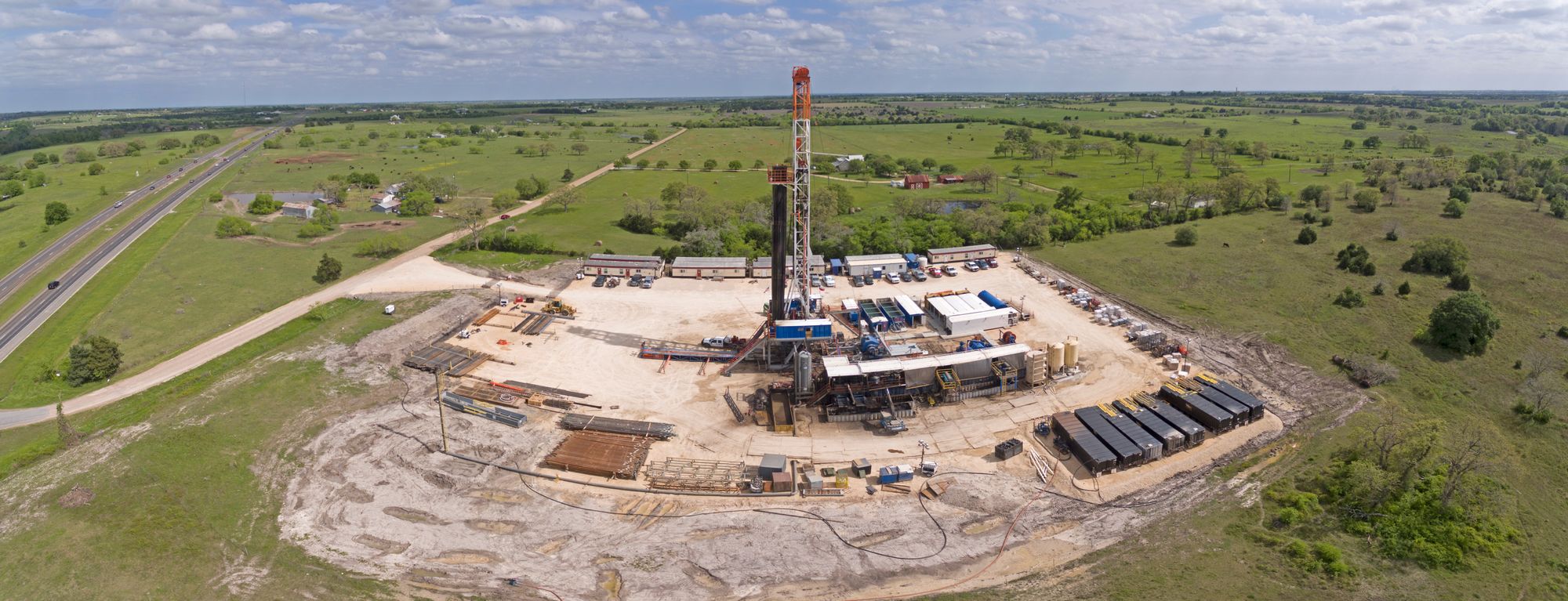
Currently, global oil and gas production needs to drop by 40% to reduce the impact of oil-related business on the environment. Unfortunately, the US, powered by Texas companies, is on course to increase the output of oil and gas by 25% in the coming years.
Avoid radical acts that will detract from the climate change message
In September 2019, the Texas Critical Infrastructure Protection Act went into effect. This made it a crime to attempt to forcefully disrupt businesses while preaching the climate change message. Around two dozen Greenpeace activists became the first people charged under the law, for dangling off a bridge on the Houston ship channel.
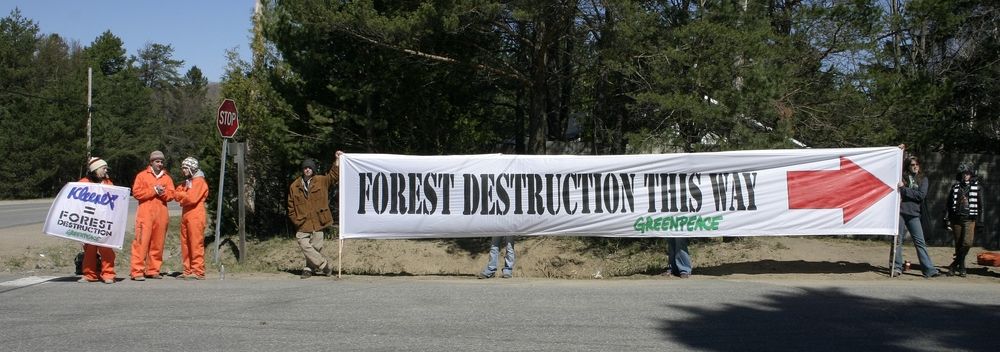
Apart from the punishment of 10 years imprisonment and fines of up to $500,000, such radical protests only give climate change deniers more opportunities to take the attention away from the main focus of the protests which is global warming.
Conclusion: Bracing for Impact
Since SMEs are some of the hardest hit by the effects of climate change, every small business owner has to be more strategic about preparedness for the future. In addition to challenging those who continue denying climate change with facts, here are a few things you can do:
- Evaluate your business processes to become as eco-friendly as possible. If you run a publishing business, for example, you can switch to printing on-demand to keep your inventory small and reduce your carbon footprint.
- Create a robust disaster recovery plan that will improve the chances of your business making quick and full recovery post-natural disasters. Consider strategic investments that will make your business more immune to the impact of climate change.
- Work with the local community to educate the populace on the dangers of global warming and what they can do about it. Consider offering products and services that are geared towards encouraging more eco-friendliness.
With these steps, you can ensure your small or medium enterprise is in the right shape to face what's coming while doing everything possible to avert the fury of climate change that scientists predict if we all bury our heads in the sand.
